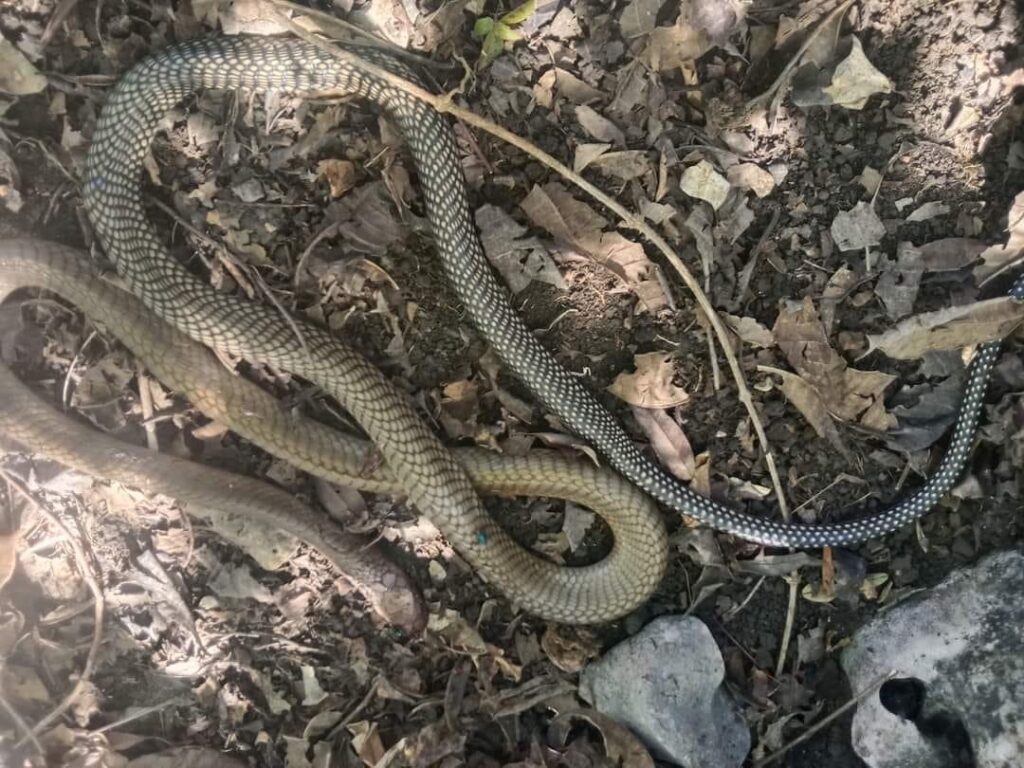CEBU CITY, Philippines –Is the Department of Environment and Natural Resources (DENR) to blame for sightings of king cobras here?
Snake sightings, particularly of king cobras locally known as banakon, have been on the rise in Cebu, causing concern among residents and leading to various speculations about their presence.
Just this week, two king cobras were reported and killed in Linut-od, Argao, Cebu. It’s believed they were mating at the time, which aligns with their mating season from January to April.
Adding to the concern, another king cobra was reported and killed in Lumpan, Alegria, Cebu on February 27.
READ: TIMELINE: The unprecedented sightings of king cobras in Cebu
Residents are puzzled by the sudden emergence of snakes. Many are questioning why the increase in snake sightings in Cebu is happening.
Authorities have provided explanations.
While acknowledging mating season as one reason, they’ve also pointed out the gradual effects of El Niño as another contributing factor to the surge in snake sightings.
Does DENR release snakes to the wild?
Despite these explanations, some netizens still suspect that the DENR has something to do with this, citing the agency’s practice of releasing snakes back to the wild.
These allegations surfaced on social media, with netizens expressing their concerns.
Addressing these allegations, DENR-7 has refuted these claims.
In a phone conversation on March 5, DENR-7 explained that the agency’s practice of releasing snakes back into the wild might have been misunderstood by residents.
READ: Understanding king cobras: Why we should not kill them
She stressed that if the accusations were true, it would contradict their efforts in wildlife rescue and conservation.
Additionally, the expert debunked the claim of snakes being randomly dropped from helicopters, remarking, “Maayo pa ang mga has, nakasakay og helicopter. Ang taga DENR wala.” (Lucky snakes, they’re able to ride a helicopter. We from the DENR haven’t yet.)
Strict Protection Zone
Clarifying further, she explained that the released snakes are relocated to specific protected areas, away from human communities, in what they term the Strict Protection Zone.
This zone, defined by a DENR Administrative Order, are areas with high bio-diversity value, which shall be close to all human activity except for scientific studies and ceremonial or religious use by indigenous communities.
Rescued animals are temporarily housed and assessed for release by veterinarians before being returned to their natural habitat.
This process ensures that they can reacclimate to their environment and regain their natural instincts.
In a recent update, Carlo Babiera, an Ecosystems Specialist from DENR-7, revealed that rescued reticulated pythons from various areas were released into protected zones within the region on February 16.
Though he didn’t disclose the specific locations, Babiera assured that they were released responsibly in line with conservation efforts.
